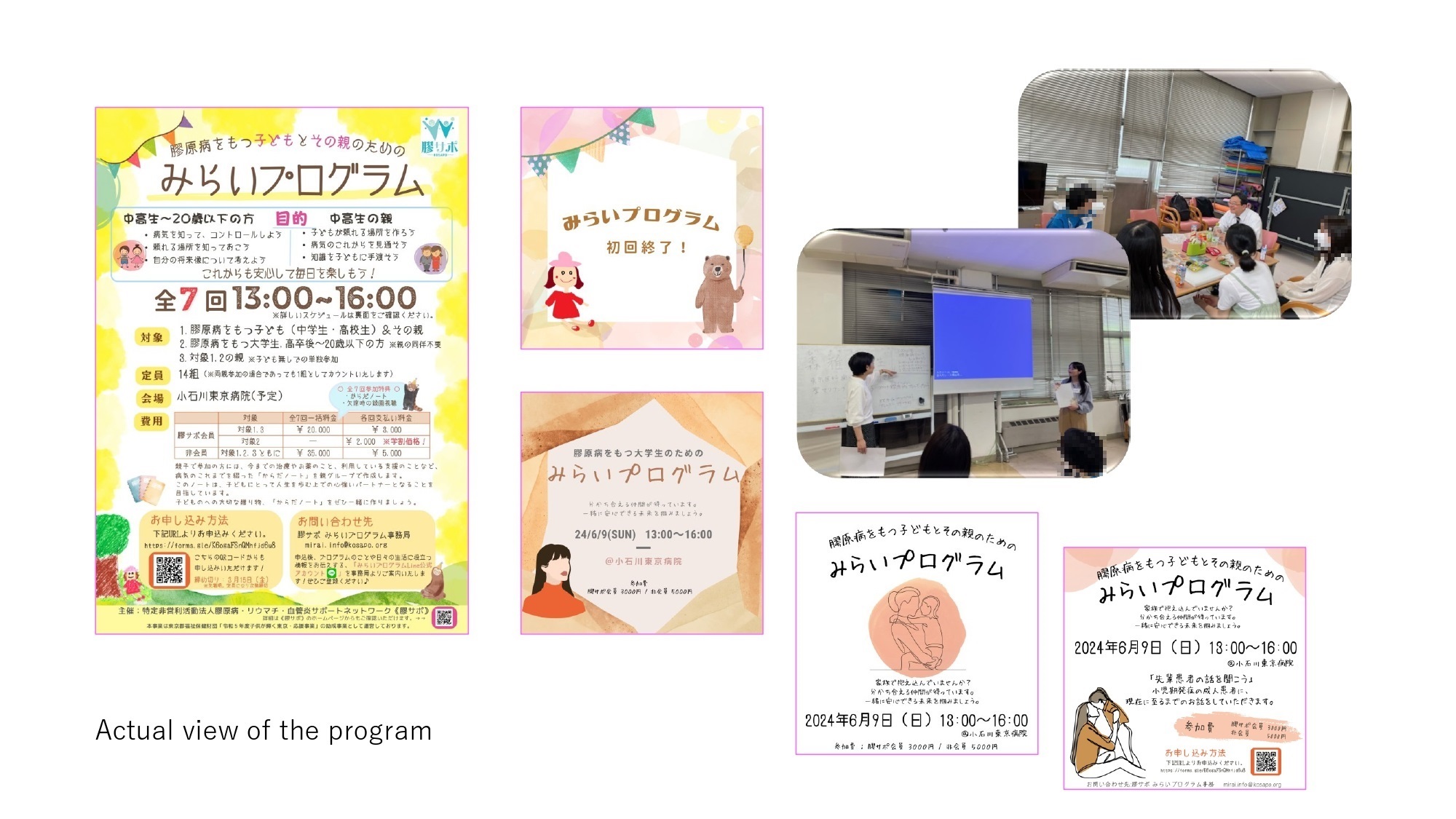Session Information
Date: Saturday, November 16, 2024
Title: Patient Perspectives Poster
Session Type: Poster Session A
Session Time: 10:30AM-12:30AM
Background/Purpose: Paediatric rheumatic diseases are complex experiences for children. For children whose language skills are still undeveloped, it is difficult for them to put their experiences into words and to remember them as a coherent sensation.
[Experiencing Illness]
The medical terminology used by adults is disconnected from the diverse sensations that occur in the body for children. For the child, the experience is not only the symptoms, but also the entire background surrounding the disease. The experience of symptoms is inseparable from the experience of how the medical professional was with the child, and what kind of relationship unfolded between the parents and the child, all of which are experienced simultaneously. These complex experiences are far from verbalised and are left unorganised.
[Future]
Living with the risk of disease, children are repeatedly asked to change their goals to cope with unpredictable relapses and learn the need to compromise on their future in order to control their symptoms. The process of determining their future is a fundamental reexamination of what work, family, and life are all about. Children with rheumatic disease learn earlier than other children that the human body is fragile and that we are mortal beings.
[Communication]
Parents imagine their children’s future and guide their lives into the future. However, parents of children with incurable diseases find it difficult to show their children how to live.
Parents feel guilty and disappointed in society. Children also feel guilt and disappointment. The more they think of each other, the more these feelings are repressed and become entwined in their lives without being verbalised.
Intervention: Our non-profit organisation has decided to implement a transitional support program for children and their parents.
By presenting at the 2023 ACR, we were able to gain support from many different professions. The psychologists understood the significance of being there to verbalise the experience. Paediatricians, rheumatologists, and other physicians with expertise in transitional support gave us the knowledge we needed to launch the project.
Maintenance: The program was drafted by adult patients and parents with children who have onset diseases, alongside a team of experts. In addition to doctors and psychologists, people from various fields such as pharmacists, pharmaceutical companies, and cosmetics companies were involved in the program. The parents were given a “body notebook” as homework, and the children participated in the next program while looking at the notebook. A program in which paediatric rheumatic disease patients and their parents create meaning in their experiences.
Quality of Life: The most important aspect of this program was not that many experts offered advice. Rather, it was in the fact that the dialogue with the experts brought to light key points of support that had gone unnoticed. Dialogue with people from various fields surrounding the disease leads us to rediscover forgotten relationships and reunion with forgotten memories.
To cite this abstract in AMA style:
Okochi N, Oishi E, Mitsuyama K, Sorimachi E, Bando S, Hirama Y, Yajima N, Mori M. Reunion with Forgotten Relationships and Memories [abstract]. Arthritis Rheumatol. 2024; 76 (suppl 9). https://acrabstracts.org/abstract/reunion-with-forgotten-relationships-and-memories/. Accessed .« Back to ACR Convergence 2024
ACR Meeting Abstracts - https://acrabstracts.org/abstract/reunion-with-forgotten-relationships-and-memories/

